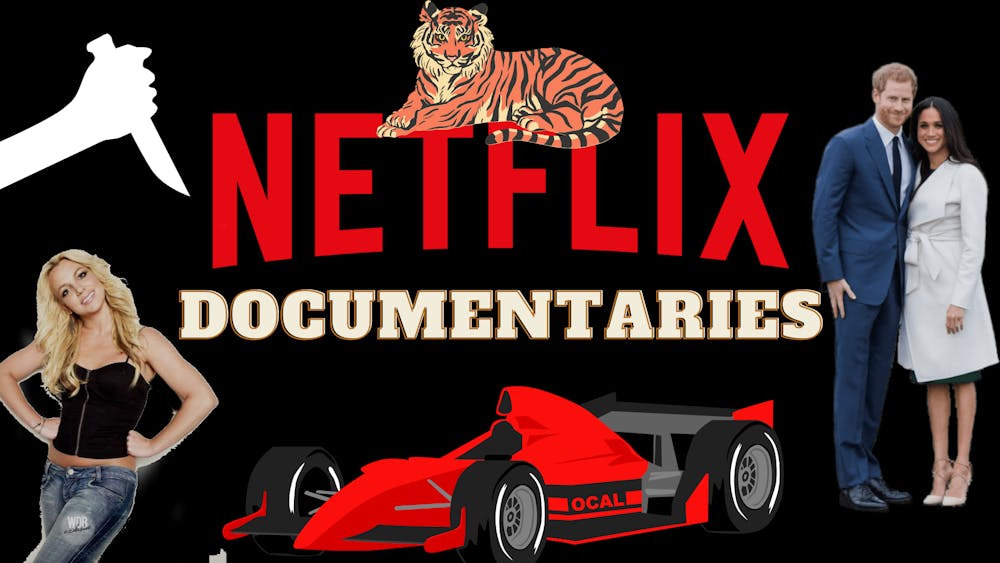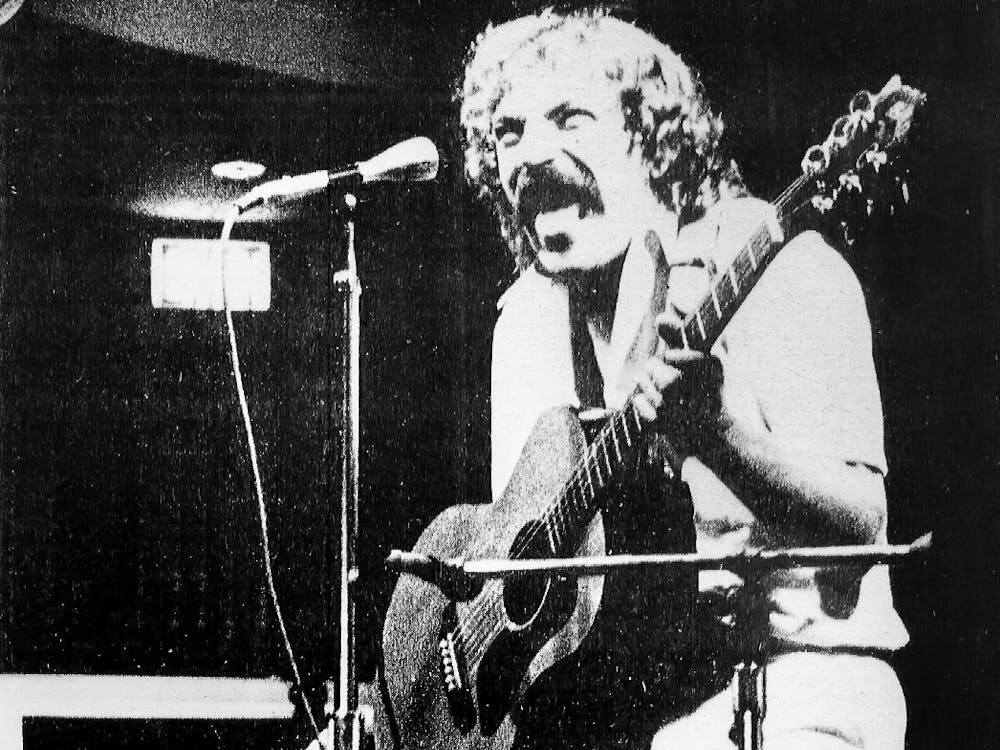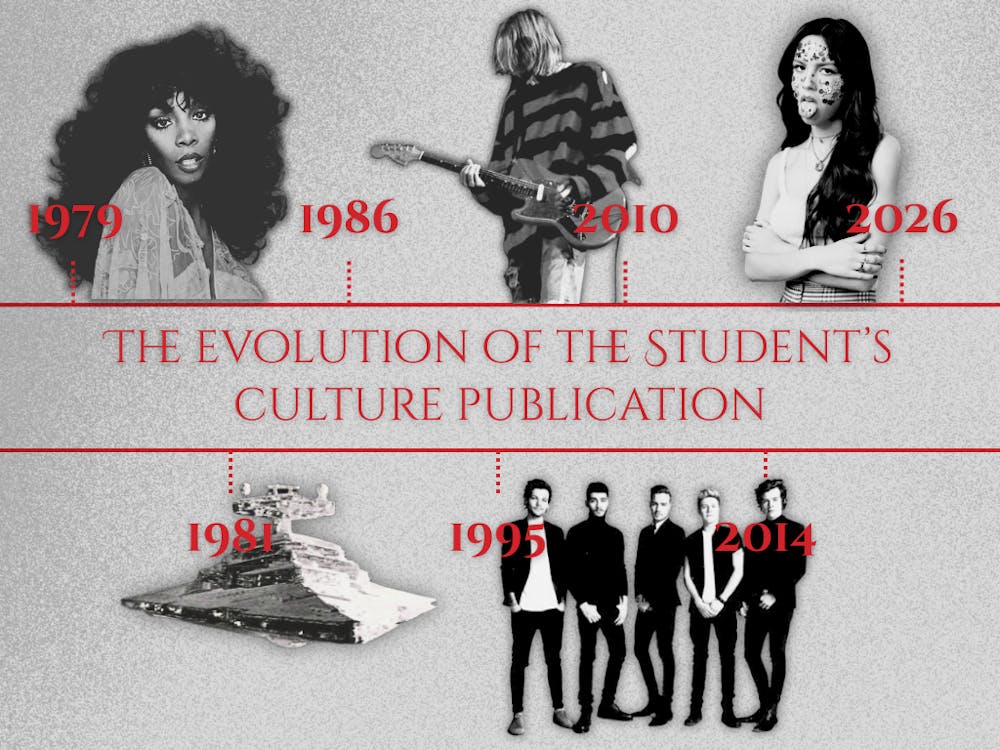Every once in a while, a documentary series or film earns the top spot of Netflix’s website. Titles like “Tiger King,” “Harry & Meghan,” “Drive to Survive” and the new “Murdaugh Murders” slither their way into viewers' everyday conversations.
A vast majority of documentaries, though, like “Our World” or “13th,” fly under the radar.
Andy Rice, a documentarian and assistant professor in the department of media, journalism, and film at Miami University, sees the industry searching for the next big hit rather than for important stories. With the rise of streaming services, Rice said documentaries today are being scrutinized for engagement rather than quality or impact.
“[Streaming services] want films that are not just going to be good,” Rice said. “They want them to be competing for audience attention with all the other streaming services out there.”
One example was “Harry & Meghan,” a documentary series released on Netflix in December 2022. The show had many viewers upset because of statements from Prince Harry and Meghan Markle. This did not change the fact that the series became the most-watched documentary series over the first four days after release on the platform.
With streaming services racing for clicks and views, the accountability of filmmakers may be put on the back burner.
“You’re accountable to your audience, your viewers,” Rice said. “You’re also accountable to the person who sponsors whatever it is you’re making. If it’s Netflix or something like that, you need to have a certain level of dramatic storyline before they’re going to be happy with their investment.”
In the race for more views, quality can suffer. “Formula 1: Drive to Survive” has come under scrutiny for inaccuracies in the last two seasons. The series has followed Formula 1 for five consecutive seasons, starting with the 2018 season.
The inaccuracies in the series include taking audio clips from different situations and creating tension in teammate pairings when there shouldn’t be any. This was highlighted by current McLaren racing driver Lando Norris, going through the inaccurate moments in seasons 1-4 on the YouTube channel Quadrant.
The Formula 1 World Championship has gained 4.3 million fans between the first and fourth seasons of “Formula 1: Drive to Survive” according to Nielsen data. The impact has been directly linked to the show, but the steady increase does not show a major concern for the inaccuracies in the series.
“This is not a documentary,” said Totto Wolf, the team principal of the Mercedes AMG Petronas F1 team in season five of “Formula 1: Drive to Survive.” “It’s more close to Top Gun than a documentary.”
Even before streaming services, documentaries had been put under scrutiny. The HBO miniseries “The Jinx: The Life and Deaths of Robert Durst” aired a sound bite of Rober Durst confessing to murdering Susan Boreman in 2000. It was later revealed that the sound bite, which helped garner two Emmy wins, was pieced together from multiple conversations.
Enjoy what you're reading?
Signup for our newsletter
This is not to say that all documentaries on streaming are bad or inaccurate. Netflix in particular creates a space for documentaries to reach large audiences and create change.
“Think about Ava DuVernay’s film ‘13th,’” Rice said. “It's an exploration of the 13th amendment and its relation to the prison industrial complex. Because it was on Netflix and put on their splash page for a while, millions of people saw that film, [and it] changed the way they thought about criminalizing black people.”
Documentaries on streaming services have had an impact on the public because of their voice and reach. Series like “Framing Britney Spears” and “Leaving Neverland” have forever shifted the public’s view of influential figures.
“Framing Britney Spears,” was created through a collaboration between The New York Times and Hulu. The combination of hard-hitting facts and a desire for interaction proved influential by receiving two Emmy nominations, including one for outstanding documentary.
“You can have a niche audience and it's still a million people to watch something,” Rice said. “It's an astonishing number of people to see a documentary film. It's just a space that's really amenable to a little bit more experimentation. But I think it's changing a bit because they're looking for ‘Tiger Kings’ now.”




